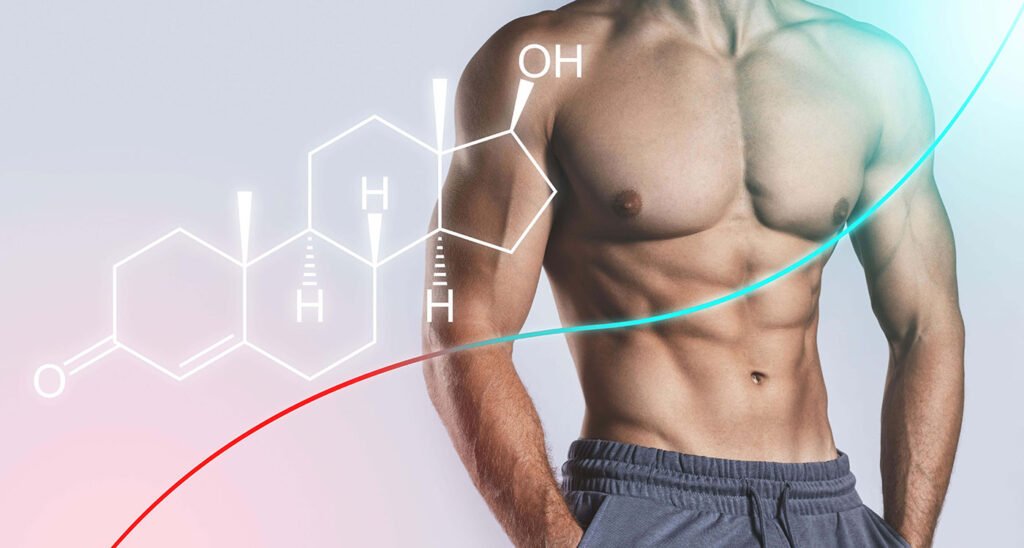Testosterone is a crucial hormone in both men and women, though it plays a particularly vital role in male health. It’s responsible for regulating libido, muscle mass, bone density, red blood cell production, and mood. As men age—or due to certain medical conditions—testosterone levels can decline. When levels fall below normal, a condition known as low testosterone (low T) or hypogonadism may develop. In such cases, Testosterone Replacement Therapy (TRT) can help restore hormonal balance.
Here are the most common signs and symptoms that might indicate the need for TRT:
1. Persistent Fatigue and Low Energy
If you feel tired all the time—even after a full night’s sleep—it could be more than just stress or overwork. Chronic fatigue is a common symptom of low testosterone. The hormone plays a role in maintaining energy levels, and a significant dip may cause noticeable exhaustion.
Signs to watch for:
- Difficulty getting out of bed
- Afternoon energy crashes
- Reduced stamina during physical activity
2. Decreased Libido or Sexual Dysfunction
Testosterone directly affects your sex drive. If your interest in sex has noticeably declined, or you’re experiencing erectile dysfunction, low T could be a root cause.
Common sexual symptoms:
- Low sexual desire
- Fewer spontaneous erections (especially during sleep)
- Difficulty achieving or maintaining an erection
3. Loss of Muscle Mass and Strength
One of testosterone’s key functions is supporting lean muscle mass. If you’re working out consistently but losing strength or seeing reduced muscle definition, low T might be responsible.
Red flags include:
- Muscle wasting
- Slower recovery after exercise
- Weakness despite strength training
4. Increased Body Fat
Low testosterone can shift your body composition, leading to increased fat accumulation, particularly around the abdomen and chest.
Related symptoms:
- Development of gynecomastia (male breast tissue)
- Weight gain without diet changes
- Difficulty losing fat despite exercise
5. Mood Changes and Depression
Testosterone influences brain chemistry and mood regulation. Low levels can result in emotional disturbances such as depression, anxiety, or irritability.
Psychological signs:
- Persistent low mood
- Feelings of hopelessness
- Decreased motivation
- Short temper or mood swings
6. Poor Concentration and Memory (“Brain Fog”)
Many men with low testosterone report cognitive issues such as forgetfulness, lack of focus, and slower mental processing.
Symptoms include:
- Difficulty concentrating at work
- Trouble remembering names or appointments
- Feeling mentally sluggish or foggy
7. Reduced Bone Density
Testosterone helps maintain bone strength. Low levels can lead to decreased bone mineral density, increasing the risk of fractures or osteoporosis over time.
Warning signs:
- Frequent fractures
- Shrinking height
- Poor posture or back pain
8. Hair Loss
While hair loss is often genetic, testosterone plays a role in the health of hair follicles. A sudden or excessive loss of facial or body hair may be linked to declining testosterone levels.
9. Sleep Disturbances
Some men with low testosterone report poor sleep quality or insomnia. While the exact mechanism isn’t always clear, hormonal imbalance can interfere with the body’s natural sleep-wake cycles.
10. Infertility or Low Sperm Count
Testosterone is essential for sperm production. Men experiencing unexplained infertility may have low testosterone or related hormonal imbalances.
When to Seek Medical Advice
If you’re experiencing several of these symptoms consistently, it’s important to consult a healthcare provider. A simple blood test can measure your testosterone levels and determine if TRT is appropriate.
Ideal candidates for TRT:
- Have clinically confirmed low testosterone levels
- Display multiple symptoms interfering with quality of life
- Have ruled out other potential causes (e.g., thyroid disorders, depression)
Conclusion
Low testosterone is more common than many people realize—and it’s treatable. If you identify with several of the signs above, don’t ignore them. Testosterone Replacement Therapy, when supervised by a qualified medical provider, can significantly improve your physical, emotional, and sexual health.
Early evaluation and treatment can lead to better long-term health outcomes.




